 People say you cannot bet on amateur sports but that is not true, you can bet on pretty much anything you like – if you find someone willing to take the bet.
People say you cannot bet on amateur sports but that is not true, you can bet on pretty much anything you like – if you find someone willing to take the bet.
The difficultly with betting on amateur and low level professional sports is when you do find markets they tend to be highly limited and payouts restricted due to the increased risk with these wagers.
On this page we discuss what makes a sport amateur and how to bet on these sports along with the major things to look out for when you do.
We also recommend some places that accept a wide range of amateur and low level professional sports bets and look at why some markets are rare or non-existent.
Best Bookmakers for Betting On Amateur Sports
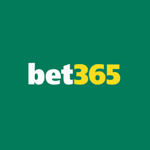
Bet365 are the most professional sportsbook there is, they simply focus on providing deep value markets that people want to bet on. They cover an outstanding array of sports and leagues across the world and should be the first place you look if trying to find markets for lower level or amateur sports. Registration required.
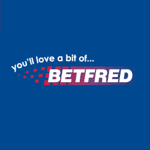
You can’t ever ignore Betfred due to their sheer size. They may not always have the market you want but they do have a very good reputation for taking bet requests which is often the way amateur sports bets need to be placed.

Unibet are huge, especially abroad, and this means they have a broad focus on both UK and continental sports. This is a good place to find amateur events away from the typical Olympics and athletics markets.
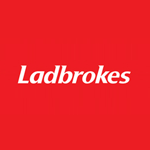
Ladbrokes are simply gigantic and along with their sister brand Coral they cover a vast range of markets over tens of thousands of events. A good place to start if looking for amateur leagues and events, they also have bet request features.
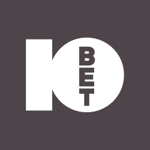
10bet cover more football leagues from around the world than anybody else. While there is an argument as to whether leagues as low down as the Isthmian league are amateur or not, this is still one of the only places you will find those bets.
Amateur Sports vs Professional Sports
 There is clear cut definition between an amateur and professional sportsman or sportswoman. Take lower league football for example, this is classified as non-professional, however it is certainly not completely amateur either.
There is clear cut definition between an amateur and professional sportsman or sportswoman. Take lower league football for example, this is classified as non-professional, however it is certainly not completely amateur either.
The main difference is in being paid for what you do, most amateurs are not paid directly for all or most of the time they spend doing the sport. This doesn’t mean they can’t win money, such as prize money for winning a race or event, it simply means they are not paid for training and competing as standard.
This is the case for most sports at low levels and for some sports at all levels. Effectively if the contestants are not paid to do what they do then it is amateur, no matter how good they are at performing. The Olympics, for example, is by nature an amateur event.
Amateur sports people can still earn a lot of money, think of the legendary sprinter Usain Bolt, it is hardly like he didn’t earn a penny when competing. The difference here is amateur contestants can earn money third party through sponsorship and image rights deals, and so can end up, in some cases, earning more than professionals.
Competitors in amateur sports generally do not have contracts either. This makes it difficult to impose restrictions on participants and it also makes it hard to force people to adhere to a specific code of conduct.
Non-Professional & Semi-Professional Sports
Again, there is no definitive description for this classification. Most semi and non-professional contestants and teams are still often paid for competing, enough to mean they have contracts, etc., but not necessarily enough that they can rely on the sport for a job. Alternatively, if talking about a semi-professional team, some members may be professional with contracts alongside some who are amateur.
Many would class lower league football, for example, as semi-professional. Most players receive a wage for playing, either permanent or game to game. Most however don’t however earn enough to allow this to be their only job, which is why in the FA Cup you’ll see the main striker for Staines Town might also be a painter and decorator during the week.
Amateur Sports Betting Explained Issues
 The issue with contestants and teams not being paid, or not being paid very much, to compete is it leaves the sport, and men and women that take part, more open to corruption.
The issue with contestants and teams not being paid, or not being paid very much, to compete is it leaves the sport, and men and women that take part, more open to corruption.
It is very hard to throw a high-level professional football match, the players and coaches are paid so much that to convince them to do something wrong would need huge amount of cash – often more than would be gained from placing bets on a fixed outcome. Professional sports people also have contracts, codes of practice, regulatory bodies and cameras that capture every second. This makes fixing exceptionally difficult and if found breaching those contracts can lead to serious penalties and bans for players, it is also their livelihood, if found cheating they could lose their income and reputation.
Bookmakers therefore can have a lot of confidence in the integrity of professional events and so offer a deep range of markets with good prices and high payout limits. Even within professional sports however the lower you go the less betting options there are available and the lower the limits.
Amateur sports, particularly those with participants that don’t earn much money from sponsors and prize money, are very open to fixing. This means bookmakers tend to leave these markets well alone as they are too hard to price based on the information available and risk. If you can place a bet on a truly amateur event you will probably find the stake and payout limits are very low to reflect this risk
There is also popularity to consider. If the event you want to bet on is not very popular then it may not be worth the bookmakers time to produce markets. They will not only get insufficient interest to justify pricing the event up, they will also likely end up with an unbalanced book in the process. As we know bookies need to balance books as best as possible to ensure profits.
In general, amateur sports bets, apart from the bigger higher interest events, are just not worth pricing up and accepting bets on for betting companies. There are still ways you can place wagers in this instance however, which you can read about further down.
Payout and Stake Limits
It is critical that if you bet on amateur events that you check the payment or stake limits for those markets. Do not assume that they will pay out the same as professional sports markets because they probably won’t.
This is a means the bookie uses to protect themselves from betting fraud with riskier markets. Maximum winnings won’t be much higher than a few tens of thousand and could be as low as a few hundred depending on the operator. You may be able to arrange high limits for certain wagers by contacting the bookie.
How To Bet On The Olympics
 The Olympics is supposedly an amateur only sporting competition. This means entrants are not able to be paid to train or compete. This definition is however very blurred. Most high-level competitors in popular sports are paid huge amounts by sponsors and endorsers, and almost all team events now have professional players.
The Olympics is supposedly an amateur only sporting competition. This means entrants are not able to be paid to train or compete. This definition is however very blurred. Most high-level competitors in popular sports are paid huge amounts by sponsors and endorsers, and almost all team events now have professional players.
Some sports have maintained a true amateur status, such as boxing, but whatever way you look at it for a lot of Olympic sports competitors do not need a secondary source of income, they can focus entirely on their sport.
There is enough sponsorship and state backing (paying for training, coaching, facilities, travel, expenses, kit, etc.) for high profile sportsmen and women that they can afford to train full time. For many this makes them professional rather than amateur by nature. Therefore this is why the same nations always win all of the medals each time, because they are the ones that ‘invest in’ (aka pay) their athletes to be the best.
For this reason, many bookmakers treat top level Olympic events as they would any other professional sports event and will generally offer markets for things like athletics, Olympic team sports and other popular events as standard. It is common with a track running event, for example, that you will see some markets, at least the outright winner of the event. It is also often possible to get ante-post markets months or even years in advance for the biggest races.
Of course, most Olympic sports are not high profile enough to attract enough backing to allow full time competitors. These are generally what you would classify as the true amateur sports people and consequently it is the lower profile sports that you will find it hardest to bet on. Not because there is no interest, more because the bookies find the truly amateur events too risky to take wagers for. You can however always try requesting a bet (see later).
When it comes to the Olympics there are a lot of special markets available, especially those that focus on the national level. USA to win the most medals for example. These are easier for bookies to price and they don’t rely on any specific individual events and so are generally safer.
How To Bet on Athletics
 If you want to bet on top level events like 100m, 200m, 400m, hurdles, 5000m, 10000m, etc., then you won’t have too much of a problem with some of the bigger bookmakers.
If you want to bet on top level events like 100m, 200m, 400m, hurdles, 5000m, 10000m, etc., then you won’t have too much of a problem with some of the bigger bookmakers.
These will be available for all major events such as the Olympics, diamond league, world championships, commonwealth games., etc.
You may even find more than just the outright victor, with many specials (e.g. false start, someone to fall, forecast bets, etc) and other lines available, especially online.
Athletics at the top level is professional in all but name and therefore it is not too difficult to find markets with bigger operators, especially closer to the event dates.
How To Bet on Amateur Football
 What is amateur football exactly? If you class anything below League Two in England, for example, as amateur football then indeed it is very easy to bet on. Most betting sites these days provide markets for conference and national level divisions below the main leagues.
What is amateur football exactly? If you class anything below League Two in England, for example, as amateur football then indeed it is very easy to bet on. Most betting sites these days provide markets for conference and national level divisions below the main leagues.
10bet for example, famous for offering hundreds of leagues from around the world, offer markets down to the Isthmian league, the 8th tier of English football.
Of course, the further you go down the pyramid the less operators offer markets, this generally means less competitive odds prices. Higher betting fraud risks means that payout limits will generally be a lot lower when betting on these events and you will also find you don’t quite have as many markets available to bet on, especially in play.
If you want to bet on a truly amateur football game, like some sort of Sunday league match, then you are probably not going to be able to do this with a mainstream bookie. Even if you request a bet the bookmaker has no data from which their odds traders can price a market, they will therefore either not offer you a bet or the wager will have very unattractive odds to cover their risk.
Betting on Amateur Horse Racing
 The definition of amateur when it comes to horse racing is a little different. There are both amateur jockeys and amateur horses to consider here.
The definition of amateur when it comes to horse racing is a little different. There are both amateur jockeys and amateur horses to consider here.
Grading and classification in horse racing can be very complex and convoluted but in effect amateur racing is included as part of major meetings.
An amateur horse is termed a novice, this simply means they are yet to win at a specific level but there are novice horses at all levels so this is not really amateur racing.
Amateur jockeys ride alongside professional jockeys at the same meetings however, and many amateurs win big races. There are also amateur only races, you can bet on these although you may find the maximum stake limits are lower.
In summary amateur horse racing within official meetings is easy to bet on. Betting on the local beach race while on holiday however may be a little more difficult, unless there is a bookie with a pitch on the beach.
Other Ways To Bet On Amateur Sports
A good barometer for whether there is likely to be a betting market available for an amateur event is how popular the sports stars are that compete. Interest is everything to a bookie, even if an amateur event carries more risk if enough people want to bet then you will likely find a market somewhere.
If you can’t find a bet available with a UK licensed betting site then consider the following options:
Request Your Own Bet
 Many betting companies will let you request the odds for a bet.
Many betting companies will let you request the odds for a bet.
Some have almost instant features that work through social media, like twitter and facebook, where you can get odds from traders in minutes. You can read about these in our request your own odds article.
Even if the bookie doesn’t offer instant odds requests most won’t mind you contacting them and asking to price up an event. This has always happened and bookmakers are used to receiving odds request by email, phone and post.
Ask a bookie to price up any market you like, the worst they can say is no. A tip here is to request odds from several sites to allow you to get the best value. Most requested bets have high margins built in due to risk.
You may also need to stake a certain amount before you will be allowed to place the bet, basically to make it worth the bookies interest.
Exchange Betting
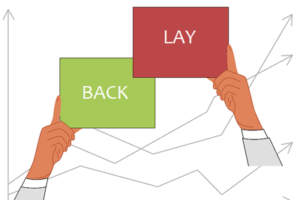 Exchanges let you to be your own bookmaker, allowing you to back bets as you would normally as well as lay bets to other people.
Exchanges let you to be your own bookmaker, allowing you to back bets as you would normally as well as lay bets to other people.
If you can’t find what you are looking for from a fixed-odds bookie then consider an exchange.
In an exchange you can often find obscure markets and events that traditional bookmakers won’t provide odds for.
Even if you can’t find the bet you want to back then you can lay the opposite outcome and see if someone else will back it.
You may need to wait to find someone to match your bet, and there is a change the bet might not get taken up, but it is still a good option when traditional odds are not available.